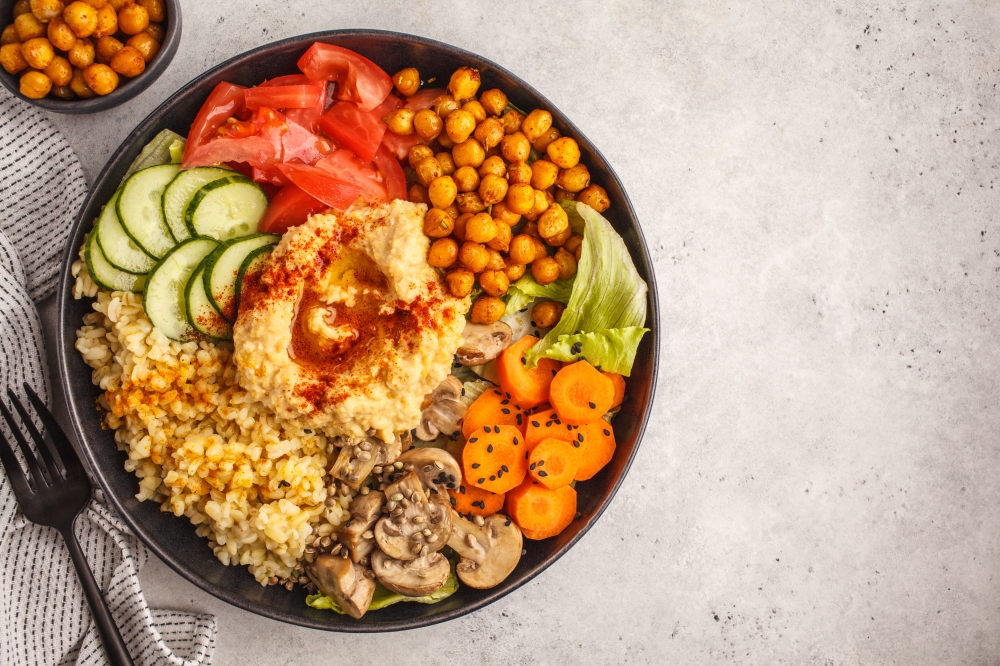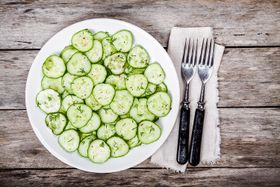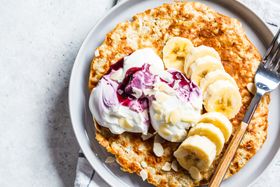Reversing Type 2 Diabetes on a Vegan Diet: What the Experts Say
Updated February 21, 2023.

Living with type 2 diabetes can be a challenging experience. It requires constant management of blood sugar levels and it's often accompanied by other health complications.
Choosing the right diet can make all the difference in managing this chronic condition. It's important to avoid refined carbohydrates that raise blood sugar and instead focus on whole foods that contain naturally occurring carbohydrates like fruits, vegetables, and whole grains. One effective diet for managing type 2 diabetes is a plant-based diet, which can help with weight loss and even reverse the condition in some cases.
Plant-Based Diet for Type 2 Diabetes
The standard American diet tends to be high in saturated fat, trans fat, sugar, and refined carbs, leading to obesity and a sundry of related medical issues. This includes metabolic disorders such as diabetes and high cholesterol, which further increase the risk of heart disease. A plant-based diet can help manage or even reverse some of these conditions, type 2 diabetes included.
What is a vegan diet? Is it suitable for diabetics?
Vegan diet prohibits the intake of any animal-sourced foods. This doesn't include just meat, but also milk, eggs, cheese, butter, etc. Unlike vegetarians, strict vegans avoid even honey as its sourced from bees.
Since it is free of animal products, the vegan diet is naturally low in saturated fat. With whole grains, fruits, vegetables, nuts, etc., this diet is high in fiber, vitamins, and minerals. In addition, dietary intake of cholesterol is almost non-existent in a vegan diet. All these factors make the vegan diet a healthy choice for people with diabetes.
Researchers have observed that a low-fat vegan diet is three times more effective in lowering blood sugar levels in comparison to the conventional diabetes diet that's low in carbs and calories (1).
A plant-based diet is good for type 2 diabetes as it contains:
- Wholegrains: Rich in fiber, whole grains have a low glycemic index which prevents blood glucose levels from spiking. Examples of whole grains include barley, brown rice, oats, etc.
- Legumes: Rich in protein and fiber, legumes are good for those with type 2 diabetes as they help you gain better glycemic control. They are low glycemic index foods that do not spike blood sugar. Legumes are good for preventing and treating diabetes. They also reduce your risk of heart disease. Examples of legumes include lentils, beans, green peas, chickpeas, etc.
- Fruits: These are rich in antioxidants and fiber which help improve your blood glucose control. A higher intake of fruits is associated with a reduced risk of type 2 diabetes. But you need to be careful with fruits when you are on a diabetic diet as eating too much can increase your blood sugar. Choose fruits with a low glycemic index. It is better to avoid dried fruits such as raisins as these have concentrated sugars in them. Examples of low-carb, high-fiber fruits are apples, guava, berries, etc.
- Vegetables: Vegetables tend to be higher in fiber and lower in carbs compared to most fruits. You can add plenty of vegetables to your diet. They are ideal for snacking whenever you feel hungry between meals. Having a salad with every meal can be beneficial as this will not only fill you up, the added fiber slows down the rise of blood glucose after a meal. Keep in mind that high-carb vegetables such as potatoes can still spike your blood sugar. Try to opt for low-carb ones such as broccoli, zucchini, bell peppers, etc. You should aim for at least 40 grams of fiber every day.
- Healthy fat sources: Vegetables tend to be good sources of unsaturated fat. Avocado is a healthy fat source that offers you heart-healthy omega-3 fatty acids and coconut oil and olive oil are very healthy sources of fat in a vegan diet.
- Nuts and seeds: Nuts make a nutritious and filling snack for diabetics. These are also healthy fat sources in a vegan diet. Chia seeds, flaxseeds, etc. are also rich sources of omega-3 fatty acids. Nuts are rich in magnesium making them a great addition to a diabetic diet, as magnesium deficiency is often associated with diabetes (2). However, you should limit your intake of nuts as they are high in calories.
Final Thoughts: The Impact of a Vegan Diet on Diabetes
A low-fat, plant-based diet helps lower your blood sugar levels, improve insulin sensitivity, and over time, it may reduce your need for diabetic medications. Most people with type 2 diabetes tend to be overweight which worsens their condition. A vegan diet can help with that as it promotes weight loss and improves overall health.
This type of diet can easily fit into the dietary guidelines for people with type 2 diabetes. However, since you cannot have animal protein or dairy, the diet might feel restrictive, especially if you're used to those foods.
Still, with the right support and guidance, you can enjoy delicious vegan meals and still lose weight. There are plenty of vegan recipes available on Trim Down Club.
To get access to a large variety of tasty vegan recipes, get started with the Trim Down Club’s Quick Diabetes quiz. Once you join the club, you will be able to get flexible meal plans customized to meet your individual needs and preferences.





